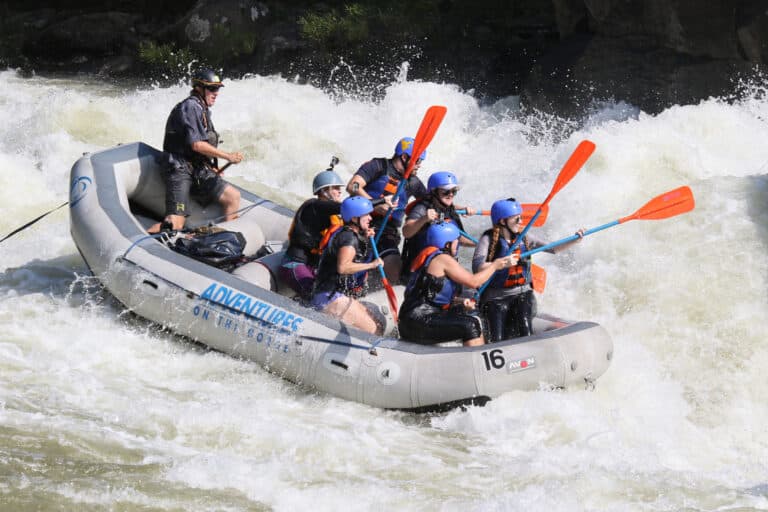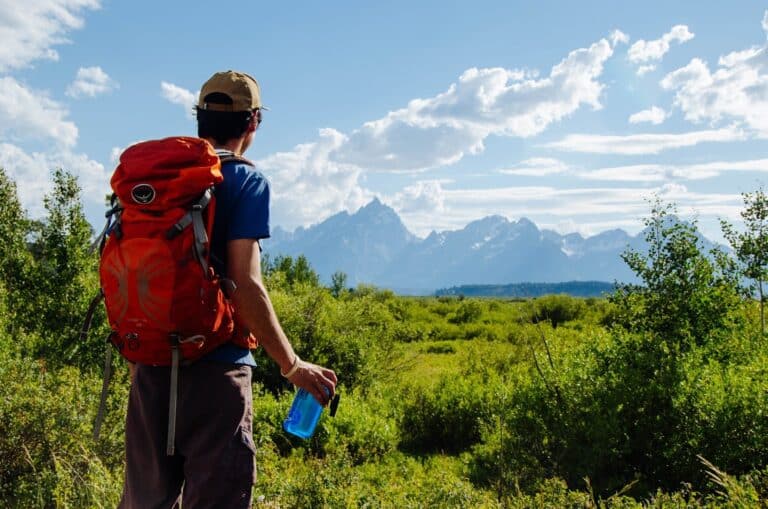I went homeless for three days around Christmas. It was an artificial homelessness, because I knew that after 72 hours I could go back to a warm bed and a fridge full of food. But the people I met — and the misery they experience — were very real. They were not the lazy alcoholics and drug addicts I’d assumed them to be. They were ordinary people looking desperately for jobs and finding none. Many have kids they call from payphones. All were ashamed of their situation.
Homeless people are the ultimate endurance athletes and outdoor adventurists, I realized. They hike for miles every day and camp out under the stars each night. They can start a campfire with a single match and a few twigs, and they can forage for food and wild edibles better than most mushroom-gathering hippies. They are thru-hikers without a Katahdin, trudging daily through rain and snow in search of their next meal or job interview.
I decided to go homeless because I wanted to feel human again. For a few days, I wanted to close the widening gap between rich and poor, suburbanite and street dweller. Wealthy Americans consume over half of the world’s resources, while one billion people starve. Within our own borders, one in 200 Americans sleep on the streets or in shelters each night, and nearly 20 percent of Americans go hungry. Most of them are children.
For too long, I’d rationalized away these kinds of statistics: they need to get jobs and make better choices, I figured. It wasn’t until I spent three days on the streets that I realized the hollowness of my rationalizations. These facts have faces. These people are human beings, just like me. Many of them were born into their situation, through no fault of their own.
The least I could do was step inside their worn, slip-shod shoes for a few days.
Beggar at the palace gates
On a frosty December morning, I stepped out of my suburban house with absolutely nothing in my stomach or my pockets. I tried hitching a ride into town, but no takers. So I hiked into town. By the time I arrived in Asheville, I was already feeling the first grumbles of hunger.
Biltmore Village — a stone’s throw from the Biltmore Estate, the most magnificent mansion in the East — seemed as good a place as any to beg for money. I found a piece of wet cardboard in a dumpster and borrowed a marker from the drive-thru manager at Arby’s. Then I hastily wrote in blue capital letters: NEED FOOD, WILL WORK.
For the next three hours, I stood on the median beside the turn lanes to Biltmore Estate. Scowling motorists filled the far turn lane, sometimes even waiting through an extra light cycle to avoid idling in the turn lane nearest me. They stared at the stoplight, or fiddled with the radio, or talked on their cell phone.
I avoided eye contact, too. I’d never felt so utterly ashamed and humiliated. I fixed my eyes on a wad of chewing gum stuck to the pavement, while passing drivers threw insults and cigarette butts out the car window: “Get a fucking job!” “Filth!” “Come paint my house, asshole!” Exhaust and hunger were making me dizzy.
Two people handed me dollar bills, and one girl poured a fistful of change into my hands. By dusk, I’d scraped up $4.48, an orange slice, and potato chips from “Jesus.” Then, as I was about to leave, a woman rolled down her window and handed me a big container of black bean soup she’d bought down the street.
“This was going to be my dinner,” she said. “I’ll keep you in my thoughts.” She smiled and drove on.
After devouring potato chips smothered in black beans, I hiked downtown. Outside a laundromat that advertised, “American flags dry-cleaned for free,” a homeless man was carrying a heaping pile of wet clothes and blankets.
“Hey, buddy,” he said to me. “Can you dry these for me?”
“I don’t have a dryer. I’m homeless, too.”
“Well shit.” He dropped the damp clothes in the parking lot. “I paid every penny I had to have these things washed, but the manager there wouldn’t dry them for me.”
I talked for a few minutes to the homeless man, a Vietnam vet who sleeps regularly beneath a bridge on Tunnel Road.
“Pretty patriotic, eh?” he laughed, nodding at the sign. “They’ll wash flags for free but won’t dry-clean a homeless vet’s blankets.” I handed him one of my crumpled dollars.
It was dark. I passed panhandlers and prostitutes beneath an interstate bridge. Down to $3.48, I began planning how I’d spend my money the next day. Three bean burritos at Taco Bell? Breadsticks at Pizza Hut?
Finally, I curled up on a bench near Pack Place and tried to sleep. I was sniffling and coughing — the first signs of a cold coming on. Music from downtown bars floated through the night air. Shivering and nearly frozen by midnight, I snuck into the bathroom of a late-night pizza parlor, where I warmed my body and refilled my scavenged plastic soda bottle with tap water. Then I foraged through their dumpster looking for leftover slices. No luck.
On the park bench, I huddled into an egg — pulling my jacket over my knees — and tried to sleep again. A homeless woman who called herself Sister Marie squatted beside me for a few minutes to chat, and later a dreadlocked derelict woke me hoping to bum a few cigarettes. Then, around 4 a.m., a cop flashed his blue lights, and I hightailed it down the street. For the next few hours, I wandered zombie-like around town, watching newspapermen fill bins and joggers shuffle beneath streetlights.
Help not wanted
Later that morning, I decided to take the advice of passing motorists and Get a Job. I visited over a dozen fast-food restaurants and grocery stores to ask for work. Every one of the conversations went something like this:
“Hi, I’m temporarily homeless and I’m looking for work. I’ll clean toilets, mop floors, haul boxes — whatever needs to be done.”
“Sorry, pal. We can’t pay you for a few hours work unless we hire you, and we don’t have anything open right now. Plus you’re a liability risk.”
I was angry and frustrated. But really, who could blame them? Why hire an unshaven homeless guy with body odor? I didn’t even have a permanent address. And managers feared if they helped me, pretty soon I’d start bringing my homeless friends to beg for jobs, harass customers, and hang around the store.
Around noon, I spent my $3.48 buying a box of Cheerios and a quart of milk from Ingles. I also stole a plastic spoon and styrofoam bowl from the store’s salad bar. After slurping down three bowls of cereal, I kept the leftover Cheerios in my pocket, rationing out a handful per hour.
Jobless and penniless, I hiked back into town. I plopped down near the library and scoured the classifieds of every free newspaper I could find. Reading was a pleasant distraction that kept my mind off food and cold.
But as the day wore on, the immediacy of homelessness crept back in. Where would I sleep tonight? Where will I get food? I couldn’t think past my next meal, and it was starting to wear on me. How could I look for jobs when I still needed to find tonight’s food and shelter?
My supply of Cheerios was nearly depleted, and rain clouds started to gather overhead. I put down my newspapers and wandered first to the Salvation Army Shelter — filled — and then to Asheville-Buncombe Christian Ministry’s Shelter — closed for the evening. I wiped my nose on my shirtsleeve. Cold rain drizzled down.
Shelter from the storm
To stay warm, I walked laps around downtown, passing yuppies in coffee shops sipping lattes and discussing the college bowl championship series. That used to be me, I thought to myself.
At 5 p.m., I’d read in one of the free newspapers, a nonprofit was serving free meals to the homeless. I arrived early and waited in line with about 50 other homeless folks. Ahead of me, two guys talked about homeless shelters they’d stayed in while hitchhiking.
“Juneau, Alaska, has the greatest shelter, man. I show up — BOOM — they give me a hot meal that evening, no questions asked. The next day, I go to their employment office — BOOM — three job leads, plus tokens for the bus to get around town.”
“It ain’t like that here,” the other guy said to Boom-er. “Asheville shelters are overcrowded, and job leads are pretty hard to come by. Shit, I spent all day walking from the mall to the bus station applying for jobs — and all of them were already filled by the time I got there.”
I wolfed down three veggie burgers with soy cheese and tofu mayo. When it started raining again — harder this time — Boomer’s buddy directed me to another shelter. By the time I arrived, a line stretched all the way around the building. I waited in line behind a middle-aged man wearing a dirty brown suit. He had been laid off two months ago and hadn’t been able to find work. Ahead of him stood a school boy from Honduras, a woman wearing make-up and carrying a Gucci purse, a guy (I think) with long frizzy hair dressed in a tight white Elvis one-piece, and a tubby man with a voice like Fat Albert. This was raw humanity, colorful and diverse — and desperate.
We filed into a makeshift chapel with a lopsided wooden cross, threadbare carpet, and a few folding metal chairs. It smelled like dried vomit. I sat on the floor beside a shaggy-bearded carpenter named Nelson, who had a swollen left hand streaked with red marks.
“Snake bite,” he explained.
Last week, while sleeping beside the French Broad, a black watersnake had curled up beside his blanket to stay warm. When Nelson reached for his vodka bottle in the middle of the night, the snake coiled around his arm and bit him.
“I killed that snake,” he said. “Skinned ‘em and ‘ate em too.”
Nelson’s parents had died when he was 16, I learned later. He’d gone to college but couldn’t find a job after graduating. With nowhere to go and no family to help him out, he had been in and out of shelters for the past four years.
“Here’s my family, right here,” Nelson said, gesturing at the 70 homeless men and women milling around the mission.
Everyone staying at the mission was required to attend an hour-long chapel service. Nelson muttered through the missionary’s sermon, which was about becoming a follower of Jesus in this “very special time” of the year.
“It sure as hell ain’t special for us,” Nelson mumbled under his breath. “The only thing we can look forward to around Christmas is more people crowding into shelters to escape the cold weather.”
After the service, women and children were transported to another building to sleep, while the men bedded down on the chapel floor. I was crammed between Fat Albert and a homeless chef named Paul. Both stayed up until 2 a.m. talking over me.
“Man, there are a helluva lot of drugs in Asheville,” Fat Albert said, shaking his head. “Deals goin’ down in the library, in the Waffle House bathroom. But man, I’m not sellin’ no more. I’ve seen some pretty wicked shit go down lately. I’m done with it. Tryin’ to turn things around, you know.”
“I hear you, man,” said Paul the chef. “I’ve only been here a few days. You find a job anywhere?”
“Naw. But they’re hiring at the Days Inn downtown and some hotels out near the mall. I didn’t have no luck there, but maybe you might.”
“I’ve been looking everywhere, man. Today, I go to Denny’s and say, ‘Let me cook for one hour. If you don’t like what you see, send me away without pay. Just give me a chance.’ Manager said he already had enough cooks.”
Then, after a long silence, Paul said, “I’m trying not to get depressed about it all.” Finally he rolled over and stared at the ceiling.
I couldn’t sleep, either. My head was throbbing, my throat was sore, and every time I lay flat, my sinuses got completely clogged. Sleeping in a windowless room with 70 other sweaty, smelly, snoring men didn’t help, nor did the television blaring in the hall. But at least I was warm and dry. Wind and rain lashed against the building all night.
In the morning, the mission provided beat-up boxes of Frosted Flakes and milk past the expiration date. I didn’t care — it was food, and it was filling. After breakfast, I stumbled groggily out onto the wet streets, hacking up phlegm the whole way home. Cars honked, people stared, parents whispered to their children as I passed. Neighbors glared at the muddy bum trudging along their well-groomed street. These were the same neighbors that used to smile and wave at me on my morning runs.
I didn’t care anymore. Nothing mattered except making it home. I had no money left, and I was too tired to stand on the corner with a cardboard sign. When it started raining again, I swiped a plastic trash bag from the McDonalds bathroom, poked holes for my head and arms, and wore it like a long smock.
Later that afternoon, I stumbled home and fell into bed. When I woke up seven hours later, I was still wearing a plastic bag and waterlogged shoes. I looked out the window at blinking Christmas lights, and then closed my eyes again. I counted sheep – and blessings.







